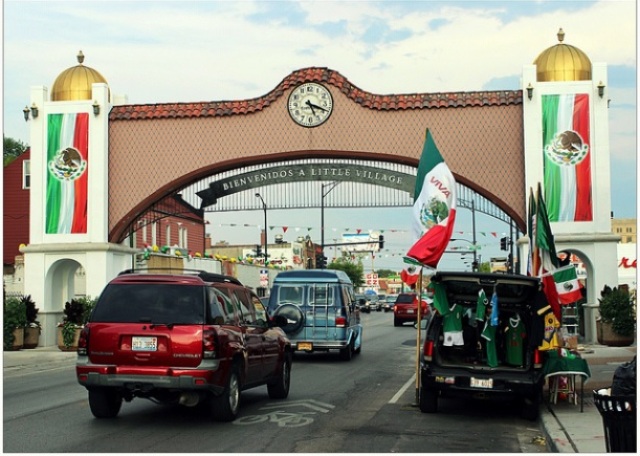Close To Half Of Adults In Little Village Don't Have Health Insurance
By Stephen Gossett in News on Dec 21, 2016 4:30PM
Around half of adults under age 65 are without health insurance in much of the Little Village neighborhood, according to newly released data from Centers for Disease Control and Prevention.
The figure reaches 53.1 percent in the highest area of the historically and predominantly Hispanic neighborhood.
Dan Fulwiler, CEO of Esperanza Health Centers in Little Village, said that number figure dovetails "almost exactly" with his experience at the center.
"We serve the community on a sliding scale and find that about half of our adults are uninsured," Fulwiler told Chicagoist.
Rates are unlikely to decline in the area "until we see immigration reform," he said. "Despite the fact that undocumented people have been working and paying taxes here for a long time, they don't have access to Medicare or the Obamacare marketplace."
When the center conducted a neighborhood call to uninsured following the passage of the Affordable Health Care Act, eighty percent who said they weren't eligible said it was because they did not have documents, Fulwiler added.
Data from the CDC also shows portions of the West and Far South Sides with figures ranging higher than most counterparts on the North and Northwest Sides, with areas reaching data sets between 30.6 and 36.3 percent and from 36.4 to 42.9 percent uninsured. The Gage Park/Brighton Park areas show noticeable clusters of higher-than-average rates of lack of health insurance, as well.
The data comes from the same CDC report that shows Lakeview to be one of the highest binge-drinking neighborhoods in America.
Taken on a national scale, however, Little Village's locally high figure is significantly better than the worst areas in the country. Neighborhoods in Dallas, Houston and San Antonio showed between 67 and nearly 71 percent uninsured rates. In fact, dozens of the least insured-among-adults neighborhoods were found to be in Texas.
The findings come as talk of radically altering—if not repealing—the Affordable Health Care Act and fears of immigration crackdowns rise ahead of Donald Trump's swearing in.
The report is based on 2014 data, the most recent year information was available, and measured findings among the country's 500 most populous cities.

CDC
